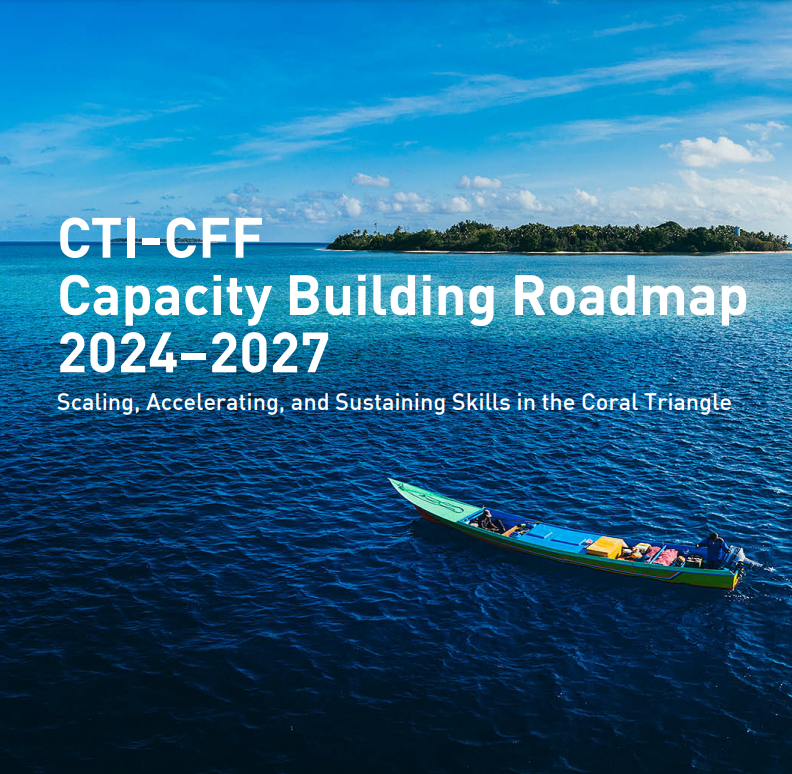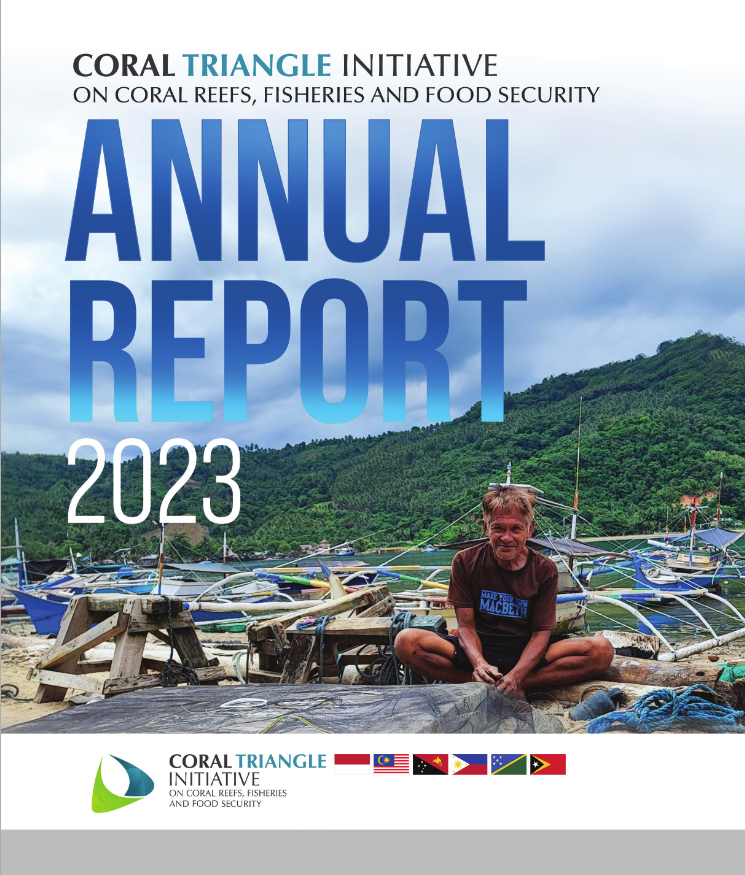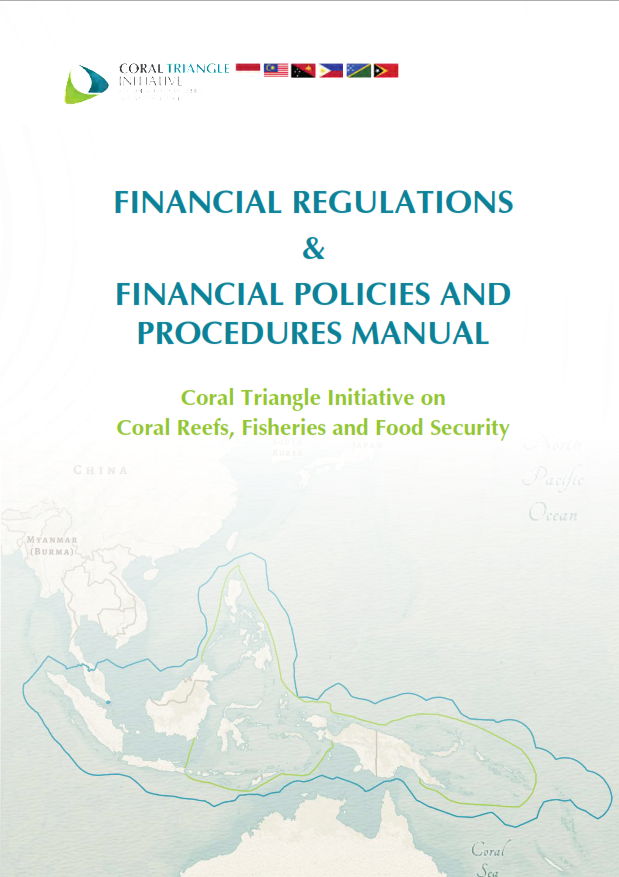Press Release: Climate Change Adaptation Working Group Thrash Out Progress and Challenges on its 5th Year of Regional Exchange
# The activity brought together technical officers and experts on climate change, environment and forestry as well as marine and fisheries research from the different government agencies and academic institutions in Indonesia, Malaysia, Papua New Guinea, Philippines, and Solomon Islands.
# In the said activity, participants came up with a draft proposal that support national and regional CCA programs of the Coral Triangle member countries as well as drafted the Guidelines for the establishment of the Center of Excellence (COE) in the CT Region. The group also agreed to finalize the development of an executive course on CCA based on the LEAP and REAP for local government in its succeeding meetings.
# The REX program was organized by CTI CCA working group in collaboration with University Malaysia Sabah and with the support of the CTI-CFF Regional Secretariat. The Government of Malaysia through its National CTI-CFF Coordinating Committee (NCCC) hosted the event.
SABAH, Malaysia, 18 May 2018 - It has been years since the CCA Working Group has revisited and discussed the status of implementation of the priority and collaborative actions outlined in the REAP-CCA. The group has identified financial support and technical guidance as the greatest challenges in implementing early actions.
The activity also brought together technical officers and experts on climate change, environment and forestry as well as marine and fisheries research from the different government agencies and academic institutions in Indonesia, Malaysia, Papua New Guinea, Philippines, and Solomon Islands.
Participants of the exchange program also came up with a draft proposal that will support the national and regional CCA programs of the Coral Triangle (CT) member-countries for possible funding by European agencies. The draft proposal was an output during the 2-day grant-writing workshop organized by the working group in collaboration with the University Malaysia Sarawak. The group also drafted the Guidelines for the establishment of the Center of Excellence (COE) in the CT Region. The guidelines were developed based on the terms of reference to establish the regional COE on CCA. During the regional exchange, the CCA WG agreed that establishing a regional COE on CCA would be very difficult and costly to the CT6, hence, the group decided to come up with a set of guidelines as reference and guide for member-countries in establishing their respective COEs on CCA.
The group agreed that in the succeeding meetings and discussions, the development of an executive course on CCA based on the LEAP and REAP for local government will be finalized. The executive course will be designed to capacitate local government officials in making their coastal communities resilient to climate change since implementation of CCA measures rests on the local government as they have the authority in terms of management, planning, and implementation of programs in the coastal areas.
The REX program was organized by CTI CCA working group in collaboration with University Malaysia Sabah and with the support of the CTI-CFF Regional Secretariat. The Government of Malaysia through its National CTI-CFF Coordinating Committee (NCCC) hosted the event.
-end-
See the gallery here; http://coraltriangleinitiative.org/content/gallery-climate-change-adaptation-working-group-thrash-out-progress-and-challenges-its-5th-y
About CTI-CFF
The Coral Triangle Initiative on Coral Reefs, Fisheries, and Food Security (CTI -CFF) is a multilateral partnership of six countries: Indonesia, Malaysia, Papua New Guinea, the Philippines, Solomon Islands, and Timor-Leste (CT6). The CT6 countries work together to preserve marine and coastal resources, and focus on critical key issues such as food security, climate change, and marine biodiversity. The CTI-CFF was established formally during the Leaders’ Summit in 2009 with approval of the leaders from the CT6 countries. They adopted the CTI Regional Plan of Action (CTI RPOA) which is a strategic action plan with five goals: (1) designation of effectively managed seascapes; (2) application of an ecosystem approach to fisheries management; (3) establishment of a fully functional marine protected area system; (4) strengthening climate change adaption and resilience; and (5) improving the status of threatened marine species.
About Regional Secretariat
The Regional Secretariat (RS) of the CTI-CFF is mandated to promote regional cooperation, knowledge sharing, and learning facilities within the six member countries of the Coral Triangle. The RS coordinates and monitors the progress of the implementation of the Regional Plan of Action (RPOA) goals. The RS coordinates and supports official meetings and events linked to the CTI-CFF process, including cross-cutting services in support of monitoring and evaluation, financial coordination, information management and outreach. It also coordinates the implementation of CTI-CFF RPOA and provides support to, and coordination with, NCCs, including advising the CTI-CSO on emerging opportunities and priorities to reaching the goals and targets of the RPOA. The RS also acts as the channel of communication and information sharing and foster networking among the Parties, CTI Partners and other organizations and donors in the efforts to promote the objectives of the CTI-CFF. The Regional Secretariat is currently based in Manado, North Sulawesi, Indonesia.
###
Media Contact:
- Janet Rosalie Anne H. Polita
- Communication & Information Manager CTI-CFF Regional Secretariat
- www.coraltriangleinitiative.org
- jpolita@cticff.org



